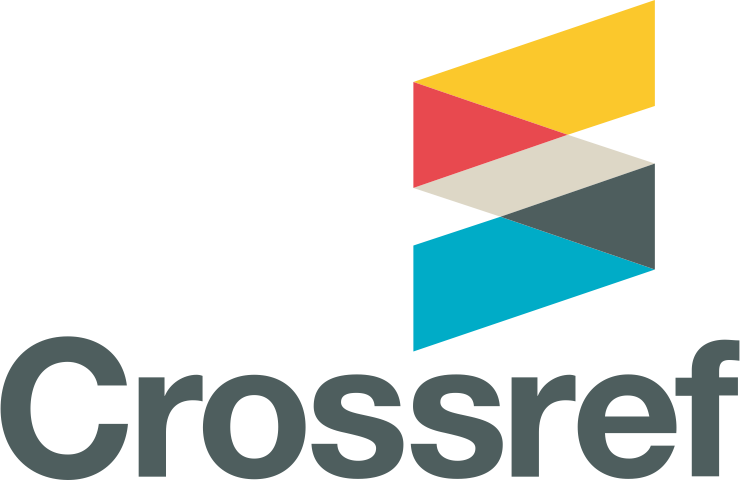An E-Library System Integrated with Bookshelf and Recommendation Components
DOI:
https://doi.org/10.33633/jais.v7i1.5791Abstract
Apparently, most students in Nigeria are facing challenges as regards to the lack of portability, stress, time wastage and inadequate resources in terms of accessing the school libraries, as well as the inefficiency of the existing e-library, leading to the reduction in the number of students that do access the libraries. Research has shown that most students no longer believe in the physical libraries and have developed interest in electronic resources. Hence, an e-library system enhanced with book recommendation component could serve as a solution to these problems. Several researchers have repeatedly attempted to develop various solutions to this problem using various methodologies and approaches in order to provide a digital library that could address the aforementioned problems. In this work, an e-library system integrated with recommendation component was designed and implemented to help students locate relevant books. Also, an additional feature which adds books to the shelf for future reference was included to enhance accessibility and efficiency of the system. The web application was implemented on a live server (Namecheap) which is one of the most effective live servers in Nigeria. Furthermore, the system was evaluated with one hundred and fourteen (114) students, and the results of the evaluation carried out on the system emphasized its usefulness in terms user friendliness (77%), user experience (86%), interface appearance (75%), system loading speed (82%), platform compatibility (78%), recommendation accuracy (80%) and recommendation reliability (84%). Therefore, the system could be used to solve students’ problems with regards to the challenges faced with the use of physical and conventional e-libraries.References
A. Iwayemi, and S. O. Adebayo, “Development of a robust library management system”, Int. J. Comput. Appl., 975, 8887, 2019.
M. R. A. Robel, S. Bharati, P. Podder, and M. R. H Mondal, “Integrated Cloud Based Library Management in Intelligent IoT driven Applications”, Fog, Edge, and Pervasive Comput. Intel. IoT Driven Appl,, pp. 85-104, 2020.
D. Tešendi?, and D. B. Krsti?ev, “Business intelligence in the service of libraries”, info. Technol. Libr., vol. 38, no.4, 98-113, 2019.
Eke, N. O. and I. A. Salihu, “Design and Implementation of a Mobile Library Management System for Improving Service Delivery”, Traektoriâ Nauki= Path of Science, vol. 7, no.4, pp. 3001-3010, 2021.
A. Heidari, and L. Nemati-Anaraki, “Global Knowledge Networking (GKN) With Utilizing of Digital Libraries: A Proposed Model”, In Intelligent Systems: Concepts, Methodologies, Tools, and Applications, pp. 373-395, 2018.
G. Marcel, and U. W. Faustin, “Development of an Online Integrated Library Management Information System: Case Study “University of Gitwe”, Int. J. Sci. Res. Comput. Eng., vol. 8, no. 2, pp. 65-76, 2020.
J. A. Alokluk, and A, Al-Amri, “Evaluation of a Digital Library: An Experimental Study”, J. Serv.Sc. Manag, vol. 14, no.1, pp. 96, 2021.
F. W. Singeh, A. Abdullah, and K. Kaur, “Critical success factors for digital library implementation in Africa: Solution focused rather than problem focused”, Info. Dev., vol. 37, no. 4, pp. 544-557, 2021.
K. Yu, R. Gong, L. Sun, and C. Jiang, “The Application of Artificial Intelligence in Smart Library”, In 2019 International Conference on Organizational Innovation (ICOI 2019) (pp. 708-713). Atlantis Press.
P. Gannamraju, S. Yarramsetti, and L. S. Kumar, “Radio frequency identification and internet of things-based smart library management system”, Int. J. Netw. Virtual Organ,. Vol. 24, no.4, pp. 329-346, 2021.
Y. Du, Y. Lim, Y. Tan, “Activity recognition using RFID phase profiling in smart library”, IEICE Trans. Inf.& Syst., vol. 102, no. 4, pp. 768-776, 2019.
I. M Omame, and J. C. Alex-Nmecha, (2020). “Artificial Intelligence in Libraries”, In Managing and Adapting Library Information Services for Future Users, (pp. 120-144, 2020, IGI Global.
D. Daimari, M. Narzary, N. Mazumdar, and A. Nag, “A Machine Learning Based Book Availability Prediction Model for Library Management System, Libr. Philos. Pract., pp.1-11, 2021.
K. S. Kumar, “Online Library Management Using Voice Recognizer Robot System”, Int. J. Res. Sci. Innov., vol. 3, no. 6, pp.102-104, 2016.
Z. Tian, “Application of Artificial Intelligence System in Libraries through Data Mining and Content Filtering Methods. In: Journal of Physics: Conference Series vol. 1952, no. 4, pp. 042091, 2021). IOP Publishing.
, F. O. Isinkaye and Y. O. Folajimi, “Experimental Validation of Contextual Variables for Research Resources Recommender System”, Int. J. Intell. Syst., vol. 10, no. 4, pp. 50-57, 2018.
F. O. Isinkaye, J. Soyemi, and O. P. Oluwafemi, "A Mobile-based Neuro-fuzzy System for Diagnosing and Treating Cardiovascular Diseases", Int. J. Electron. Bus., vol.9, no. 6, pp.19-26, 2017.
Downloads
Published
Issue
Section
License
- Authors retain copyright and grant the journal right of first publication with the work simultaneously licensed under a Creative Commons Attribution License that allows others to share the work with an acknowledgment of the work's authorship and initial publication in this journal.
- Authors are able to enter into separate, additional contractual arrangements for the non-exclusive distribution of the journal's published version of the work (e.g., post it to an institutional repository or publish it in a book), with an acknowledgment of its initial publication in this journal.
- Authors are permitted and encouraged to post their work online (e.g., in institutional repositories or on their website) prior to and during the submission process, as it can lead to productive exchanges, as well as earlier and greater citation of published work (See The Effect of Open Access).









